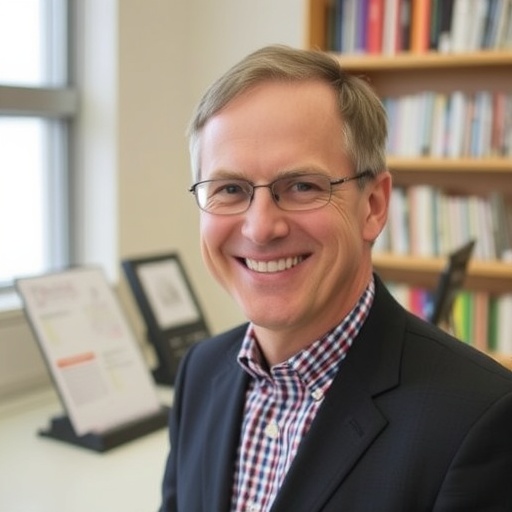In a remarkable stride toward unraveling the complexities of immune aging, Huimin Zhang, an assistant professor specializing in molecular, cell, and systems biology at the University of California, Riverside, has been awarded the prestigious 2025 Grant for Junior Faculty by the American Federation for Aging Research (AFAR). This highly competitive grant, awarded to only six recipients nationwide this year, provides up to $150,000 to support innovative research elucidating the biological mechanisms underlying aging. Zhang’s work promises to offer groundbreaking insights with profound implications for enhancing immune defenses in the elderly.
Aging is notoriously associated with a decline in immune function, leading to increased susceptibility to infectious diseases and diminished vaccine efficacy among older adults. Zhang’s research aims to decode the molecular underpinnings of this deterioration, focusing on the epigenetic regulation of T cell aging, specifically the role of a protein called HELIOS in helper T cells—a critical subset of immune cells orchestrating the body’s antibody production. Her laboratory hypothesizes that age-related loss of HELIOS disrupts the functional crosstalk between helper T cells and B cells, weakening humoral immunity.
Helper T cells, often described as the immune system’s “coaches,” are essential in guiding B cells to produce high-affinity antibodies that neutralize pathogens. Zhang’s work has revealed that the decline of HELIOS in these cells is central to the loss of this guiding function. This protein acts as an epigenetic regulator, influencing gene expression patterns that determine T cell differentiation and function. The gradual depletion of HELIOS with age results in compromised T follicular helper (TFH) cell activity, thereby impairing the body’s ability to mount robust antibody responses.
The innovative aspect of Zhang’s project lies in investigating whether restoring HELIOS expression in aged T cells can rejuvenate their function. By deploying cutting-edge molecular biology techniques and epigenomic profiling, her lab is exploring the possibility of reprogramming aged immune cells to regain youthful functionality. If successful, this approach could revolutionize vaccine development by creating strategies that bolster immune responsiveness, especially in populations that typically exhibit poor vaccine outcomes.
One of the technical focal points of Zhang’s research is the mechanistic understanding of HELIOS as a transcription factor modulating chromatin accessibility and gene transcription in aging T cells. Utilizing single-cell RNA sequencing and chromatin immunoprecipitation assays, her team aims to map the epigenetic landscape changes accompanying T cell senescence. These methodologies offer unprecedented resolution into how aging remodels immune cell function at a molecular scale.
Moreover, by delineating the pathways governing HELIOS expression and its regulatory network, Zhang’s research could identify novel molecular targets for immunotherapeutic interventions. The potential to develop small molecules or biologics that mimic or enhance HELIOS function may open new horizons for therapies designed to reinvigorate the aged immune system. This could lead to reduced morbidity and mortality from infections such as influenza, pneumonia, and shingles among the elderly.
Zhang’s research also underscores a paradigm shift in the conceptualization of aging immunity—not as irrevocably broken but as malleable and reprogrammable. This perspective fuels a proactive approach to medicine, focusing on restoring immune vigor rather than merely managing age-associated diseases. By leveraging molecular reprogramming, therapies may enable older adults to maintain disease resistance akin to younger individuals, substantially improving healthspan.
The potential societal impact of these findings is vast. Strengthening immune defenses in the aging population can dramatically reduce hospitalization rates and healthcare costs associated with infectious diseases in seniors. Enhancing vaccine efficacy through molecular adjuncts targeting HELIOS pathways could redefine public health strategies, particularly in the wake of pandemics where vulnerable groups suffer disproportionate mortality.
Beyond its therapeutic implications, Zhang’s work contributes to the fundamental understanding of immunosenescence—the gradual deterioration of the immune system with age—and the epigenetic factors steering it. Such knowledge enriches the broader scientific discourse on aging biology and promotes the integration of immunology and epigenetics to form more comprehensive models of age-related decline.
Zhang’s academic pedigree, including a doctorate in biochemistry and molecular biology from UCLA and postdoctoral training at renowned institutions such as The Scripps Research Institute and Stanford University, underpins her expertise in this interdisciplinary field. Since joining UC Riverside in 2023, she has committed to mentoring the next generation of scientists navigating the converging realms of aging and immune research.
The 2025 Junior Faculty Grant from AFAR not only supports Zhang’s research financially but also signifies recognition from a leading organization dedicated to pioneering biomedical research on aging. AFAR’s mission to catalyze scientific advances and translate them into practical interventions aligns seamlessly with Zhang’s visionary goals.
In sum, Huimin Zhang’s trailblazing research into the role of HELIOS in T cell aging opens a promising frontier in gerontology and immunology. By decoding and potentially reversing the epigenetic alterations that undermine immune function, her work aspires to transform the science of aging, making it a cornerstone in the development of advanced therapies that enhance longevity and quality of life. The scientific community eagerly anticipates the unfolding breakthroughs from her lab, which could redefine how we perceive and treat the aging immune system.
Subject of Research: Epigenetic regulation of T cell aging; role of HELIOS in immune function and T follicular helper cell differentiation
Article Title: Exploring HELIOS: Reprogramming Immune Aging to Enhance Vaccine Efficacy in the Elderly
News Publication Date: 2024
Web References:
American Federation for Aging Research (AFAR): https://www.afar.org/
UC Riverside Molecular, Cell and Systems Biology Profile: https://mcsb.ucr.edu/
Huimin Zhang Lab: https://zlabimmunol.bio/
Image Credits: Zhang lab, UC Riverside
Keywords: HELIOS, T cell aging, epigenetic regulation, immunosenescence, helper T cells, T follicular helper cells, aging immunity, vaccine enhancement, B cell function, molecular reprogramming, immune rejuvenation, AFAR Junior Faculty Grant
Tags: American Federation for Aging Research grantantibody production and agingepigenetic regulation of immune cellsHELIOS protein in immune responsehumoral immunity in elderlyimmune aging researchimmune function decline with ageinnovative aging research fundingmolecular cell biology of agingT cell aging mechanismsUC Riverside faculty achievementsvaccine efficacy in older adults





